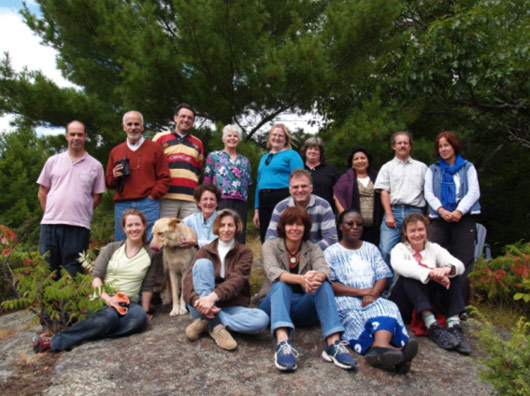Volume 10: Numéro
03
Octobre 2007
English
Newsletter

| Si vous désirez vous inscrire, avez des questions ou des suggestions ou si vous souhaitez contribuer au bulletin, SVP contactez Yann Vergriete, éditeur du bulletin ou David Galbraith, directeur exécutif du RCCF : yannvergriete@fastmail.fm dgalbraith@rbg.ca |
| 2. IUCN-SSC Plant Committee Gathers in Eastern Ontario, Danna Leaman, Co-deputy chair, IUCN-SSC Plant Conservation Sub-Committee
In mid September, members and guests of the Plant Conservation Sub-Committee of the Species Survival Commission, the World Conservation Union, gathered for a two-day strategy session in Lanark County, Eastern Ontario. Foremost on the agenda was a review of the activities of the IUCN network of plant specialist groups during the current IUCN quadrennium (2005-2008), and articulating the network’s priorities through 2012. Aligning and supporting the IUCN-SSC plant network’s contributions to Target 2 of the Global Plant Conservation Strategy, “A preliminary assessment of the conservation status of all known plant species, at national, regional and international levels” is, and will continue to be, a central priority, reflecting the facilitating role undertaken by the IUCN Species Programme, a member of the Global Partnership for Plant Conservation, for this target. While much progress has been made in recent years by the broader IUCN-SSC expert network on global assessments of birds, mammals, and amphibians, a global conservation assessment of all plant species present an enormous challenge to plant experts world-wide: among the 240,000 – 420,000 species of higher plants, and 14,000 – 15,000 species of bryophytes thought to exist, fewer than 12,000 plant species have been assessed according to the IUCN Red List Categories and Criteria. Of these existing assessments, approximately 1,000 are up-to-date with the categories and criteria revised in 2001 and the more thorough documentation required. Several approaches to meet this challenge are underway. These include:
Additional priorities discussed during the September strategy meeting include activities of the IUCN-SSC plant network that address, inter alia, the impacts of invasive species, climate change, expansion of biofuels, and non-sustainable use of economically important species on plant conservation.
|


